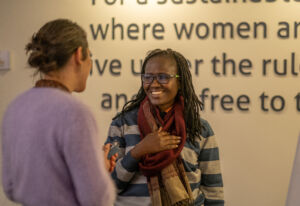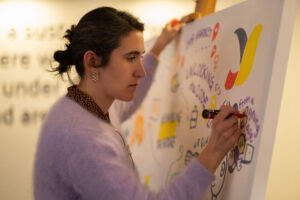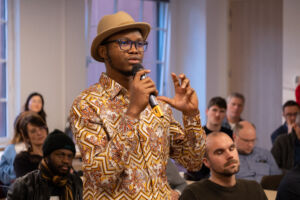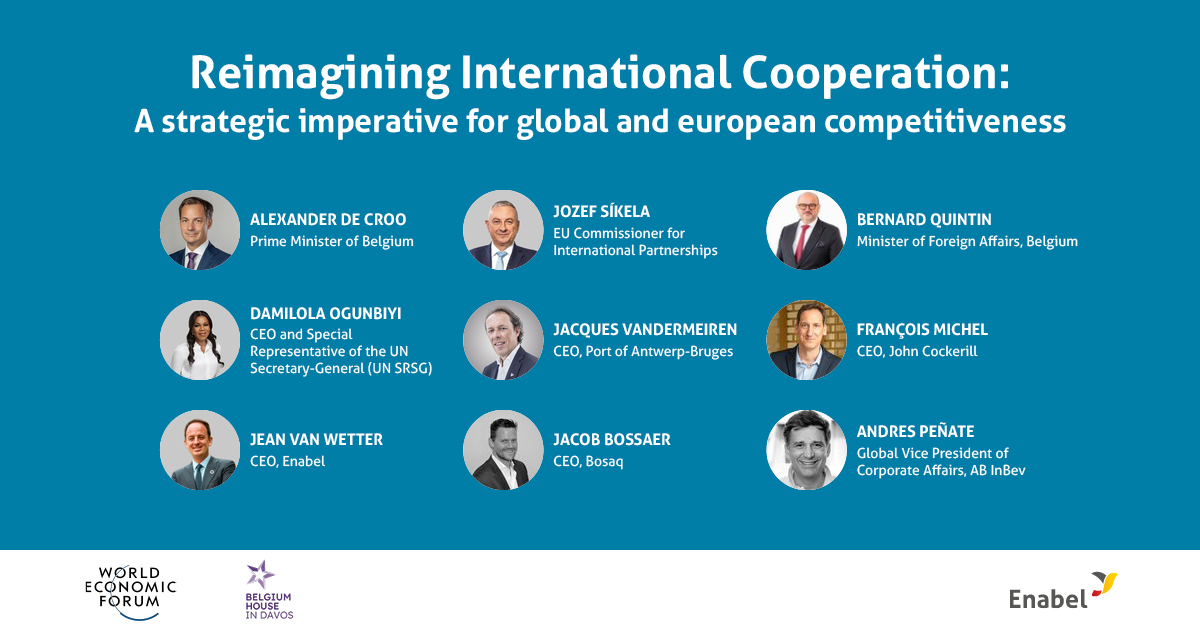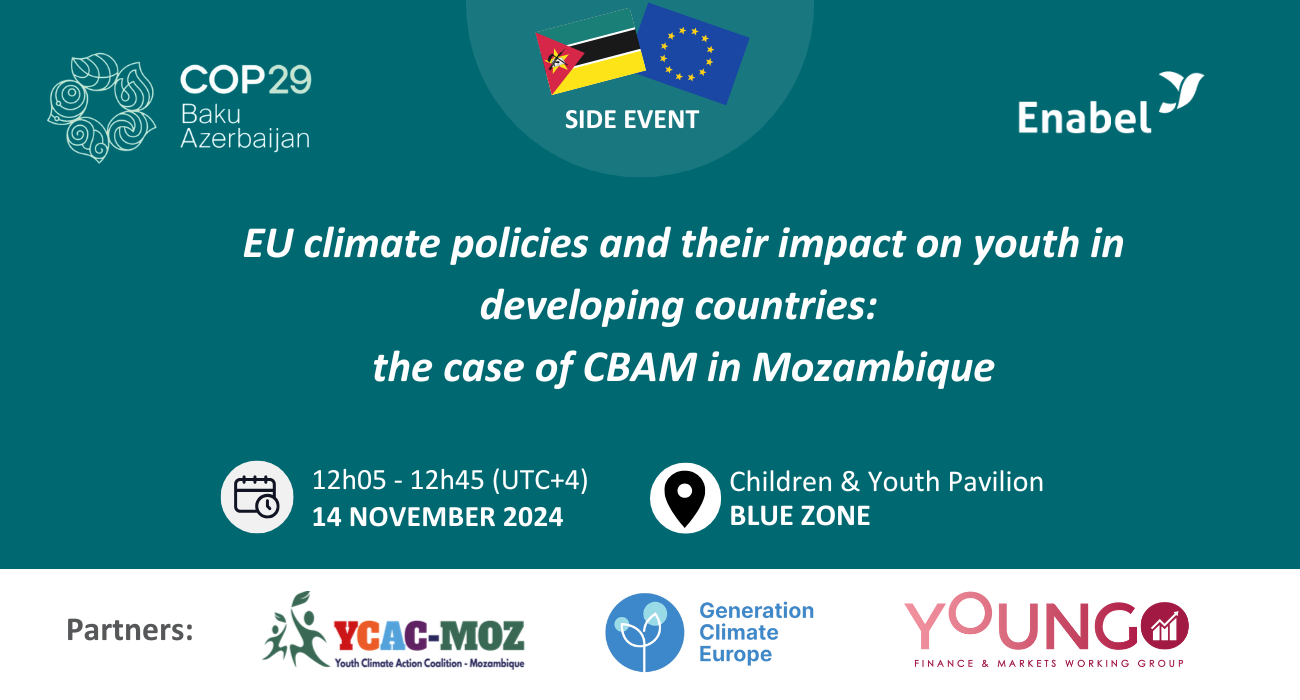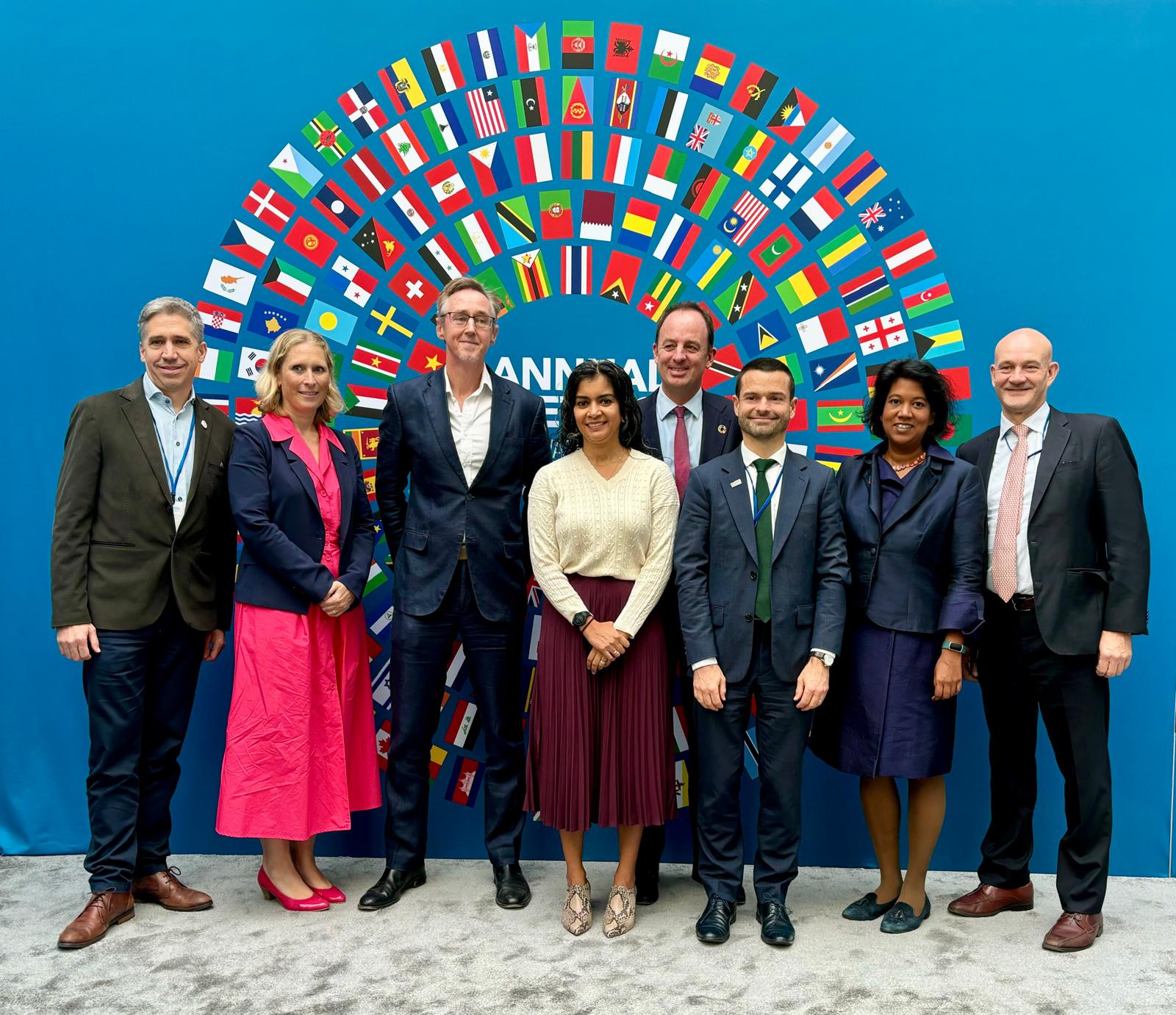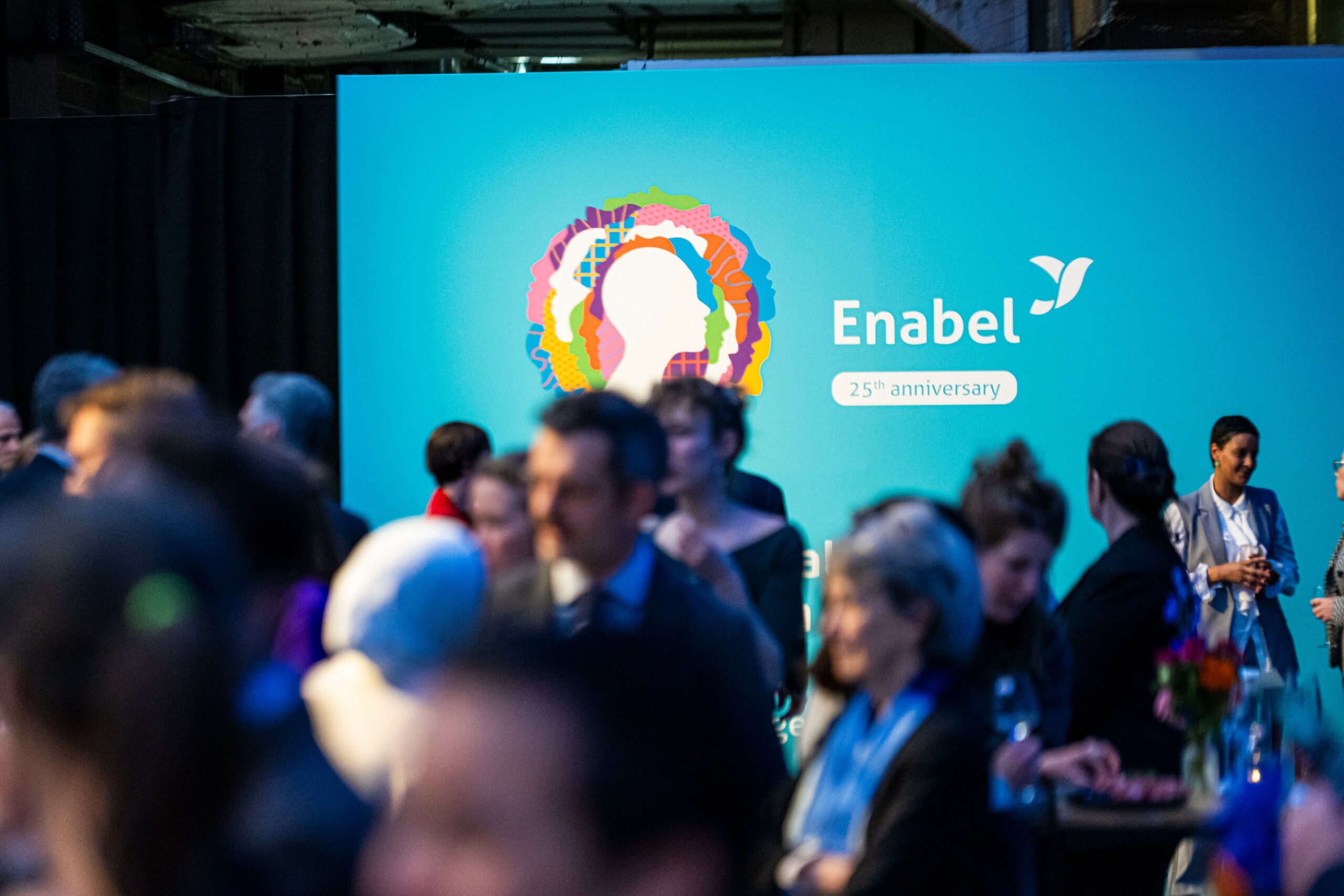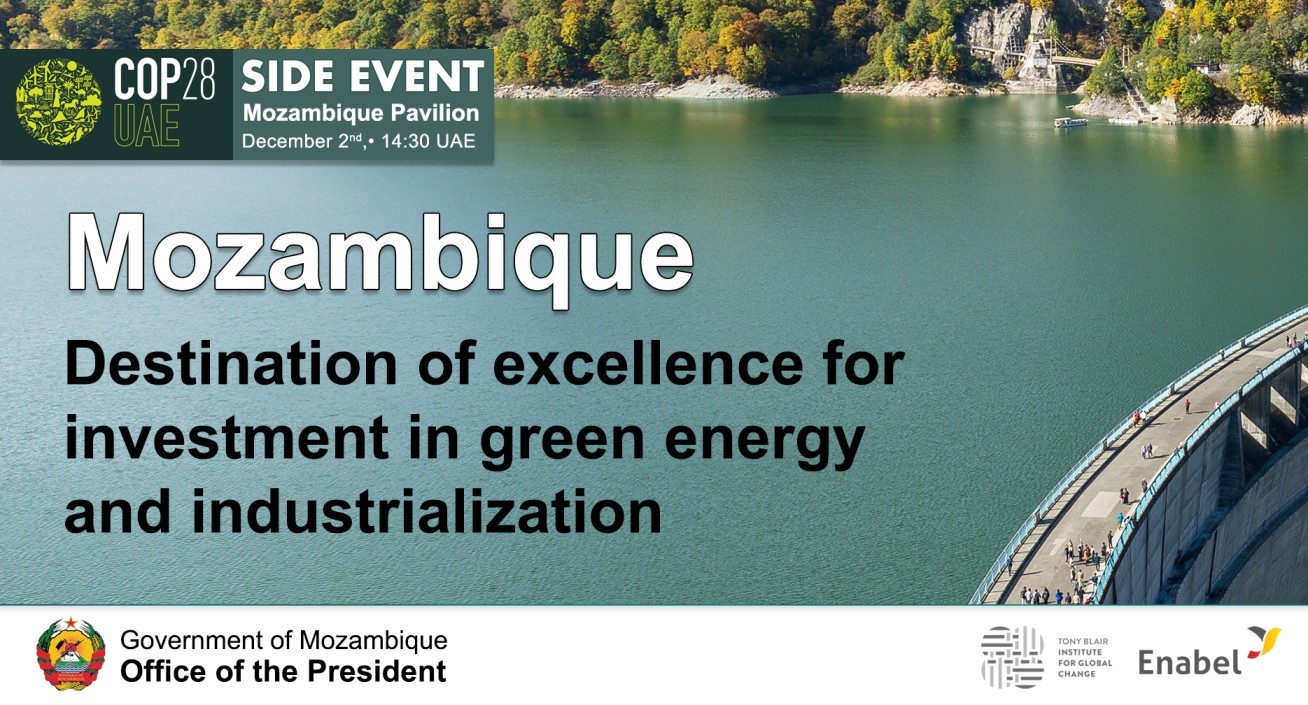5 key takeaways of the first #EnablingTheFuture event
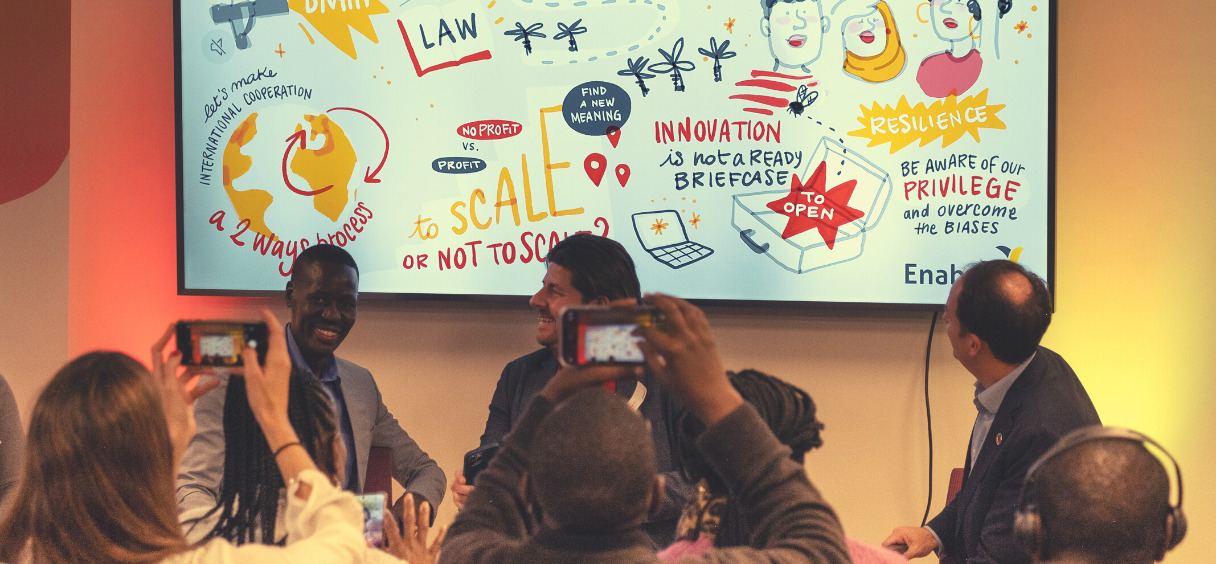
On 15 December Enabel organised the first edition of #EnablingTheFuture at its Brussels office. This hybrid event gathered 150 people from the social innovation scene in both the global south and the north, aiming at joint action and investment in innovation to accelerate progress towards the Sustainable Development Goals.
Want to know what we have learned at this event? Here are our 5 main takeaways:
1. Wanted: bold action and courageous people
Are we designed for failure? With this provocative question, Gerald Abila, founder of Barefootlaw, opened the panel debate on ‘innovating with impact’.
With only 7 years to go, we are far from reaching the Sustainable Development Goals that guide the 2030 Agenda. Gerald and his team did not accept the status quo and set a bold ambition for 2030: making access to justice and law readily available to 50 million people across Africa using digital technologies. According to Gerald, the stakes are high: “Innovation is not a matter of choice. It’s innovate or die.”
Jean Van Wetter, managing director of Enabel, calls for joint investment in social innovation and a renewed engagement towards the 2030 Agenda.
“Over the past decades, the entire international cooperation sector gradually transformed from a rebellious movement that wanted to fight injustice into an industry that is governed by control measures and bureaucracy. We should not reinvent the wheel but reinvent ourselves.”
As CEO he set a clear ambition to transform Enabel into an innovation pioneer. “It is our moral obligation to the current and future generations to innovate. I encourage our staff and partners to be bold and challenge the status quo. It is the only way to stay relevant to our partners in Africa and the Middle East, where things are changing extremely fast.”
2.Copy-pasting the Silicon Valley model: Do not try this at home
“Putting your innovation programme in a briefcase, travelling from Belgium to a community somewhere in Africa, opening the briefcase and starting to teach people how to innovate. That’s a recipe for failure.”
“The dominant discourse on ‘innovation’ in the development sector is permeated with values, images and concepts derived from a rather limited Western perspective on innovation,” explains Dr. Andrea Jimenez.
Andrea is assistant professor at the University of Sheffield and did more than 10 years of research on innovation in the development sector. Many attempts have been made to copy-paste the Silicon Valley model with all its tools, approaches and methods in other contexts, trying to breed technology unicorns with venture capital in dedicated innovation hubs: from Kenya to Ecuador.
“These initiatives have been proven to mainly serve the local elites and exacerbate inequalities rather than contribute to real local development.” Andrea invites us to radically rethink our innovation models by being aware about the power dynamics and promoting partnerships and processes that respond to the realities on the ground.
Or, as Gerald put it, “We need to start listening to the entrepreneurs on the ground.”
3.Reality check: the African innovation scene is bustling
In the field of electrical mini-grids, mobile banking and many social innovations African countries are pioneers and ahead of the global North. And because of its exceptionally young and vibrant population, we can expect many more innovations to come from the continent in the coming years.
Based on his experience leading an innovation hub in Mombasa (Kenya), which already incubated 200 start-ups, Olivier Vanden Eynde (Close the Gap) explains:
“The innovation ecosystems in African cities are developing fast. Their skill sets, passion and a genuine need to innovate are driving these innovative entrepreneurs. They do it because, if they don’t, nobody will.”
Despite a bustling ecosystem, the general image on innovation in Africa is still riddled with prejudices and discourses about North versus South, which are still reflected in the mindsets and approaches of many traditional development actors and interventions.
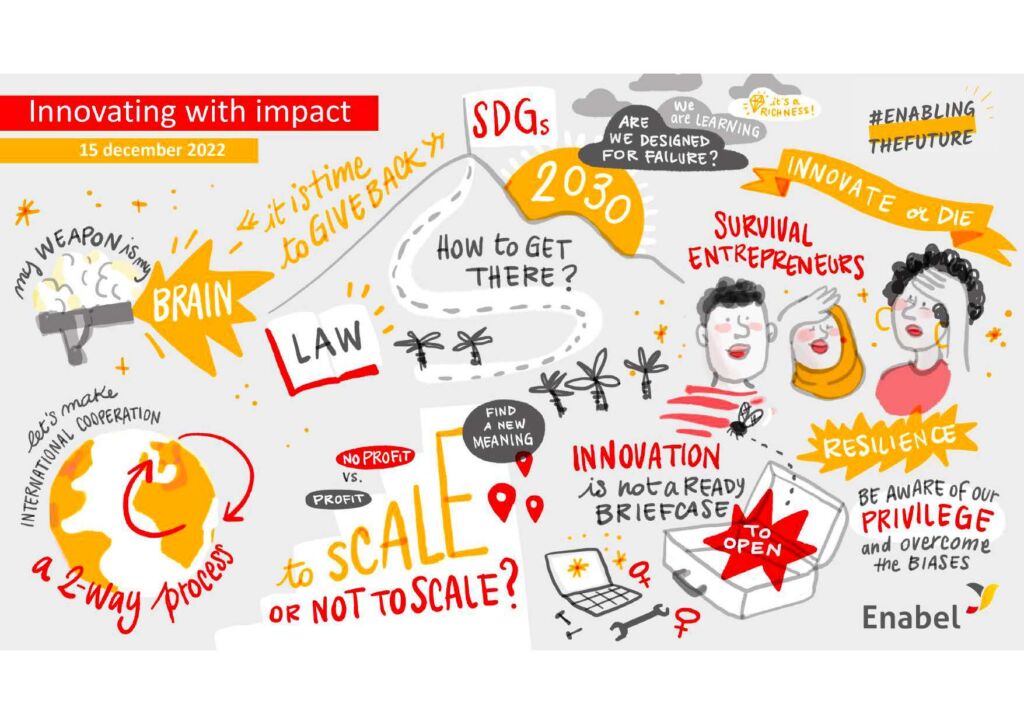
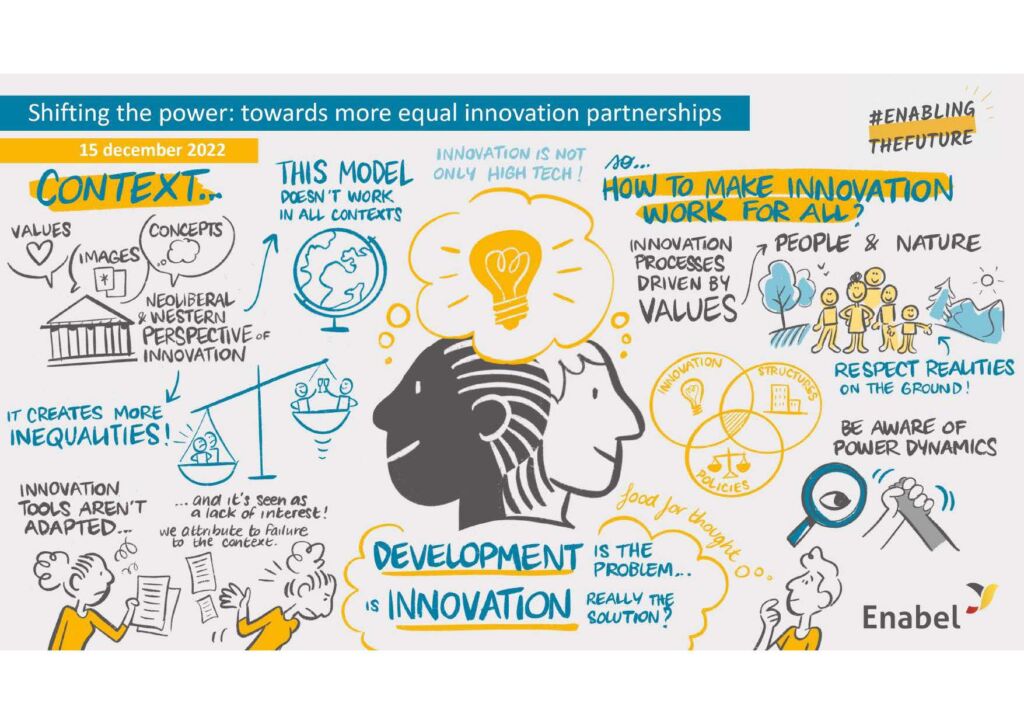
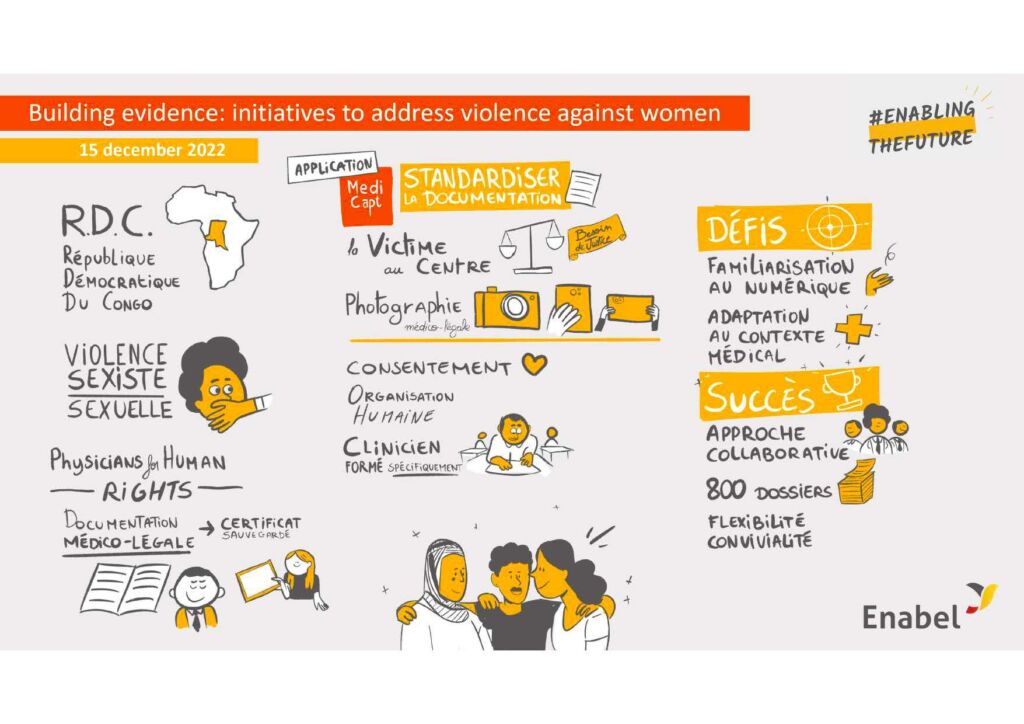
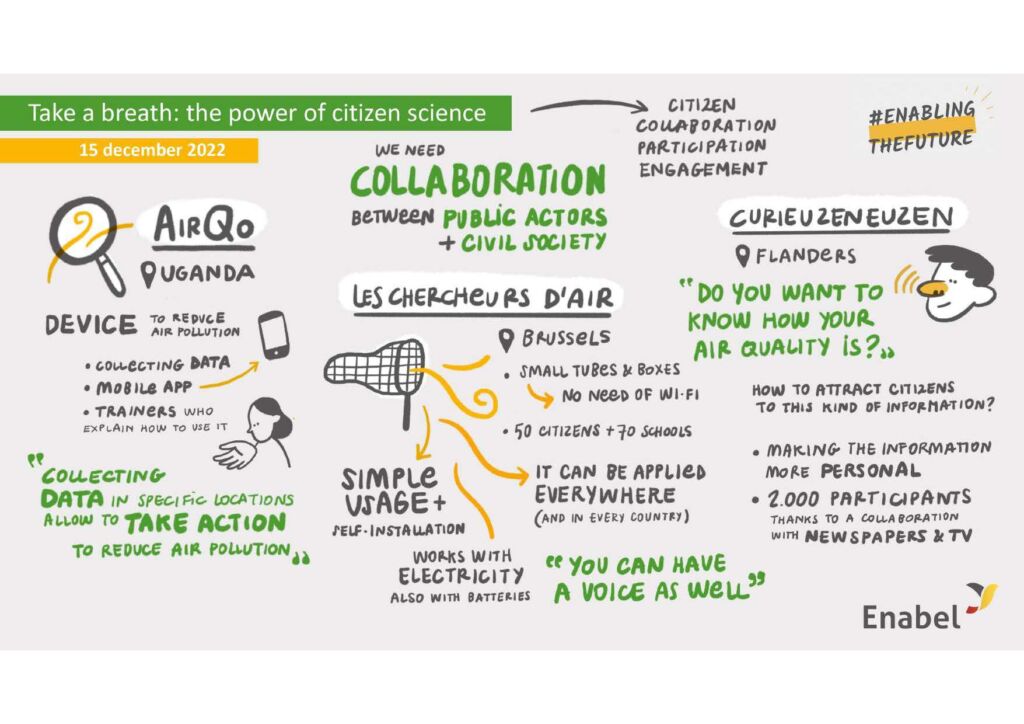
4.The many shades of ‘scale’
The question on scaling is never far away in an innovation debate. It is one of the crucial aspects in the research of Lena Kalukuta Mahina, who studies circular economy initiatives in DR Congo, Morocco and Burkina Faso.
“We start from local innovative solutions and identify the factors that can make them replicable to other contexts and sustainable over time, through a financially viable business model and public or private investments.”
A perspective shared by Jean: “I don’t think going from grant to grant is the way forward. We need a business model perspective to identify the potential of innovations to reach impact at scale and add accountability, sustainability and value-for-money to the equation.”
Gerald argues for a broader perspective on scaling:
“We need to find new meaning to the profit versus non-profit discussion. Some innovations are so unique, so the magic is in keeping it local. Scaling from the non-profit space is not the same as the Silicon Valley model that promotes more and bigger. Sometimes scaling is about going deeper into the communities.”
There is clearly no one-size fits all scaling approach and scaling strategies should always be adapted to their specific contexts.
5. The way to go: learning as peers, partnering as equals
Although contexts may differ, many of the social innovators in both the global south and north are working on innovative solutions to similar challenges: citizen science to combat air pollution, coding programmes to help vulnerable and young people find a job or ways to support women in their fight against sexual violence.
That’s why Jean encourages people in the global north to take a closer look at the creative solutions that are being developed by African entrepreneurs. “Maybe these innovations can also be useful in a European or Belgian context?”
There is still much room for peer learning between innovators all over the world.
Lena and Gerald give us examples of the collective lessons we could draw from this first #EnablingTheFuture event.
Lena: “We need to go beyond the paternalistic North-South discourse and promote genuinely equal partnerships”
Gerald: “A first thing we can do collectively is to recognise our privileged positions and overcome the biases this may create when building partnerships and designing social innovations. Truly listen to the communities you are trying to serve and involve them in what you do.”
The #EnablingTheFuture event aims to fill in this niche as a platform where Innovators and innovation supporting organisations from the global south and north can meet and exchange as peers.
Join us on this global journey: Reach out to your Enabel contacts or drop us a message at innovation@enabel.be.
